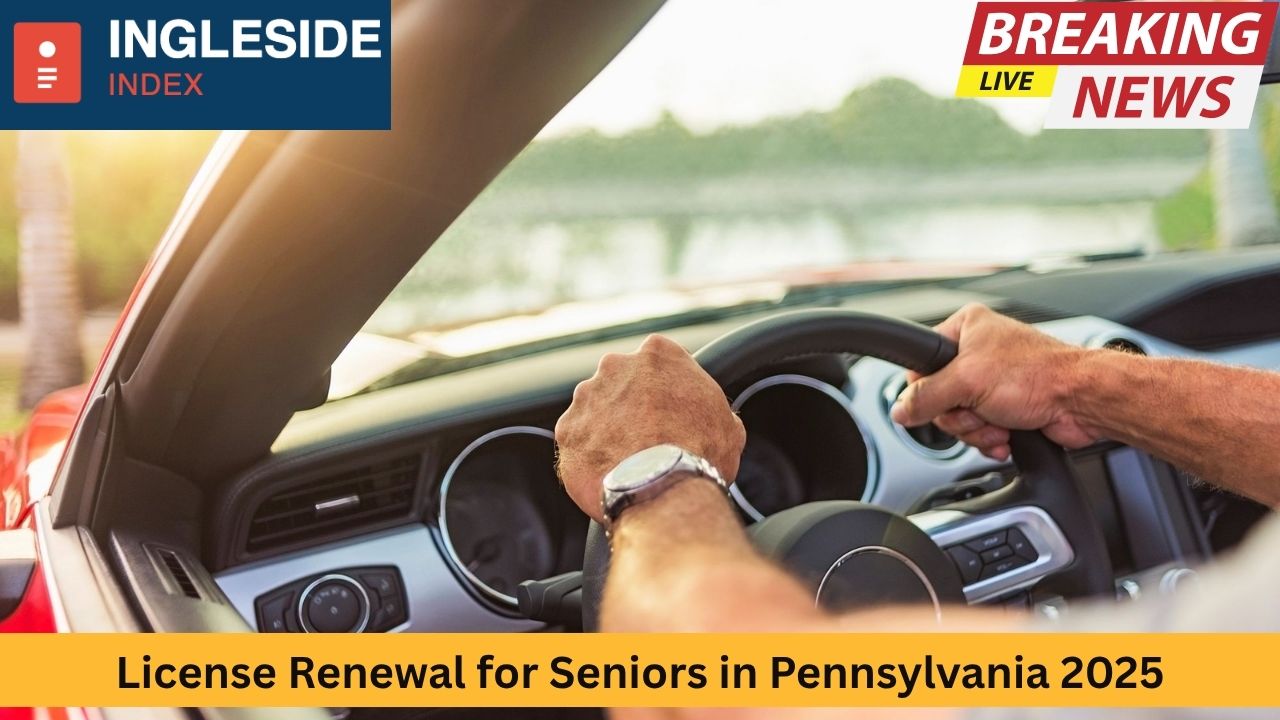Renewing your driver’s license is a routine yet essential part of independent living, especially for seniors. As Pennsylvania’s population ages, it becomes increasingly important to understand the processes, policies, and perks surrounding license renewal for drivers aged 65 and older. In 2025, there are several updates, changes, and helpful tips tailored specifically to senior drivers. In this comprehensive guide, we’ll cover everything from eligibility and documentation to in-person testing, medical considerations, technological tools, and safety tips—all aimed at ensuring you stay safe and legally compliant on the road.
Understanding License Renewal Requirements in Pennsylvania
Who Is Considered a Senior Driver?
In Pennsylvania, the Department of Transportation (PennDOT) defines senior drivers as individuals aged 65 and above. The same renewal rules apply to all adult drivers, but PennDOT emphasizes safety screenings and medical evaluations for seniors to ensure road safety.
Renewal Frequency and Validity Period
For drivers under 65, a standard driver’s license is valid for four years. For senior drivers, the renewal process remains biennial—every four years—but PennDOT may request more frequent medical assessments depending on health conditions. While the renewal period hasn’t changed in 2025, some seniors face restrictions like limited term renewals or vision tests.
Key Changes in 2025 Revised by PennDOT
Introduction of Online Renewal Pre-Screening
To streamline the process, PennDOT launched an online pre-screening tool in 2025. Seniors can answer questions about health, vision, and recent medical changes to determine if they’re eligible for online renewal or required to undergo in-person testing.
Biometric Confirmation at PennDOT Centers
At select Philadelphia, Pittsburgh, Harrisburg, and Erie PennDOT Driver License Centers, biometric identification systems (fingerprint scanners and iris recognition) were implemented to reduce identity fraud.
Temporary Disability Plates Streamlined
In collaboration with the Pennsylvania Human Services Department, a temporary disability plate application process was integrated into license renewal for seniors with mobility impairments. This avoids redundant visits for plate requests.
Documentation and Eligibility: What Seniors Need to Bring
Basic Requirements
No matter your age, Pennsylvania requires:
-
Your existing valid or expiring PA driver’s license
-
Acceptable identification (passport, birth certificate, or certified document)
-
Proof of Social Security number (Social Security card or W-2)
-
Two proofs of Pennsylvania residency (utility bills, bank statements, or lease agreements)
Seniors must ensure that all documents are current and accurate before renewal to avoid multiple trips.
Medical Forms and Vision Tests
PennDOT requires all drivers renewing in person to complete Form DL-180C, the Medical Examination Certification. Although primary responsibility lies with the medical provider, seniors must:
-
Provide updated medical documentation (blood pressure, diabetes, neurological, cardiovascular, history of falls)
-
Take vision screening (20/40 or better vision corrected)
Health and Medication Disclosure
New in 2025, PennDOT added a health and medication information section to the renewal form. Seniors must note conditions like sleep apnea, seizure disorders, and medication effects (dizziness, drowsiness). Be prepared to show recent medical records or a letter indicating suitability to drive.
Online vs. In-Person Renewal: Pros and Cons
Online Renewal
Seniors aged under 70 without major medical conditions and with a clean driving record may qualify for online renewal. The process includes:
-
Online pre-screening health check
-
Uploading scanned proof of identity
-
Payment of $30 renewal fee and $6 photo fee
-
Mailing to receive a new license via USPS (10–14 business days)
Benefits
-
Convenience of home renewal
-
Avoids lengthy PennDOT lines
Shortcomings
-
Not suitable for drivers with pending medical reviews or reactions to medications
In-Person Renewal
Required for seniors:
-
Over 70 years old
-
With recent accidents, DUIs, or serious illnesses requiring medical forms
-
Seeking real ID or needing a photo
Steps:
-
Complete and bring Form DL-180C
-
Submit identification and residency documents
-
Obtain fingerprint scan and eye test
-
Pay $36 ($30 renewal + $6 photo)
-
Receive temporary paper license, mailed permanent within 15 days
PennDOT Driver License Centers: Locations & Hours
Here are some senior-friendly PennDOT centers offering priority service:
-
Philadelphia – Northeast Office, 3701 Grant Ave: Open Mondays, Wednesdays, and Fridays with early hours 8 a.m.–4:15 p.m.; dedicated senior lane until 10 a.m.
-
Pittsburgh License Center, West Liberty Avenue: Appointment-based; morning slots for seniors.
-
Harrisburg Regional Driver Exam Center, Linglestown Road: Walk-ins welcome early mornings.
-
Erie PennDOT Driver Center, Liberty Street: Daily vision & medical testing; senior time slots on Tuesdays.
To avoid delays, schedule appointments online, particularly if medical evaluation is required.
Senior Discounts and Additional Services
License Fee Exemptions
Seniors over 65 receive a $1.25 discount on their renewal fee. Additionally, recipients of Social Security disability benefits may qualify for a fee waiver. Documents proving eligibility must be shown during renewal.
Senior Safety Courses
PennDOT partners with AAA clubs across Pennsylvania to offer Traffic Safety Culture Courses for seniors. These refresher courses include:
-
Driving techniques for aging vision and reflex changes
-
Navigating traffic patterns in Pittsburgh, Philadelphia, and smaller communities like Altoona and Scranton
-
Insurance discounts (up to 10%) upon completion
Courses are typically half-day sessions ($15–$25).
Hearing Aid Placard Option
Seniors with hearing impairments (85 decibels +) may request a “HA” placard. This prompts law enforcement to use visual signals instead of sirens. Documentation from an audiologist is required.
Specific Health Conditions and Licensing Impact
Vision Conditions
-
Approval requires vision no worse than 20/40 in at least one eye.
-
Conditions like macular degeneration or cataracts must be documented and treated.
-
Drivers can renew with permanent cataract surgery documentation.
Neurological Issues
Epilepsy or seizure disorders:
-
A 6–12 month seizure-free period is required
-
A neurologist’s certification is mandatory
Parkinson’s disease:
-
Levelling series of cognitive and motor function tests needed
-
Adaptive equipment like pedal extensions or steering knobs may be allowed
Cardiovascular and Diabetes Considerations
-
Hypertension controlled under 150/90 mmHg usually accepted
-
Insulin-dependent diabetics need a letter from their endocrinologist certifying awareness of hypoglycemia symptoms
Medication Impact Assessment
Medications labeled as “drowsiness warnings” are flagged by PennDOT. Seniors must disclose dosage and frequency. Those on low-dose antihistamines or sleep aids may need re-evaluation by a medical reviewer.
Aging and Driving Best Practices
Taking a Senior Refresher Course
Beyond safety workshops from AAA, PennDOT-endorsed courses like “Silver Wheels” in communities like Lancaster, Allentown, and York offer:
-
Local traffic pattern reviews
-
Intersection navigation and roundabout safety
-
Vehicle adaptivity (adjustable seats, audible signals)
Vehicle Modifications
Seniors should consider:
-
Extended diminishing brake pedals
-
Hand controls or steering devices
-
Wider rearview mirrors and high-visibility seat covering
These adaptations, some reimbursed by PA Assistive Technology Foundation grants, improve safety and comfort.
Confidence-Building Strategies
-
Avoid peak travel hours in Pittsburgh or Philadelphia
-
Use ride-sharing or paratransit when medical conditions flare up
-
Batch errands into one outing to reduce stress
-
Keep a detailed health and medication diary compatible with PennDOT forms
Addressing Common Concerns
Worry About Losing a License
PennDOT reassures seniors that most conditions don’t lead to loss of a license. Instead, they may receive restricted-term renewals (as short as one or two years) with periodic check-ins.
Cost of Renewal and Evaluations
Right now:
-
Standard fee is $36
-
Discounted by $1.25 for seniors
-
Medical forms are free
-
Optional courses average $20–$25
-
ADA-type modifications can cost $200–$800, with partial grants available
Renewing Without a Computer
PennDOT’s online system supports phone-based renewals with assistance from county offices. Seniors may also use walk-in services at local senior centers during PennDOT outreach days.
Step-by-Step Renewal Guide
Determine Eligibility
Use PennDOT’s website or call 1-800-932-4600 to check:
-
Age category
-
Health conditions
-
Recent infractions
Prepare Documents
Gather:
-
Current driver’s license
-
Passport/birth certificate
-
Social Security verification
-
Two forms of PA residency
-
Completed medical form
Schedule Appointment or Go Online
-
Use PennDOT’s site for renewals and appointments
-
Seniors in rural areas can use mail-in forms for initial renewal if eligible
Attend the Appointment
-
Arrive early for senior lane access
-
Complete finger scans, vision tests, medical doc review, and photo capture
Receive New License
-
Temporary paper license issued on the spot
-
Official plastic license arrives via mail in 10–15 business days
Follow Up on Restrictions or Evaluations
If PennDOT requires retests or shorter term renewals, stay ahead of your timeline with reminders or pharmacy alerts.
Case Examples
Jane from Allentown
-
72 years old with early-stage macular degeneration
-
Renewed license online in February 2025 after pre-screen
-
Submitted form from ophthalmologist and updated vision test
-
License issued for 2 years pending yearly vision update
Harold in Erie
-
78 with controlled hypertension and newly-diagnosed sleep apnea
-
Visited PennDOT in late March, underwent biometric scan, vision exam, and form review
-
Approved with a 4-year renewal term and advised annual health updates
Elvina in Philadelphia
-
81 with mild hearing impairment
-
During renewal in January, she applied for a hearing aid placard
-
Had audiologist verification, got the “HA” code, expedited processing
Planning Ahead Beyond 2025
Real ID Transition
By 2027, PennDOT will only issue Real ID-compliant licenses. Seniors will need:
-
Proof of identity and residency
-
Social Security number
-
Two proofs of address
PennDOT recommends upgrading during next renewal cycle to avoid separate visits.
Exploring Alternative Transit
PennDOT is piloting a “Senior Smart Trip” program in Lancaster and Reading in late 2025. This subsidizes ride-shares for medical appointments and grocery shopping; more regional expansion expected in 2026.
Conclusion
Navigating license renewal as a senior in Pennsylvania has become more accessible in 2025, with digital tools, biometric confirmation, and healthcare-integrated requirements. By preparing ahead, staying on top of medical documentation, and leveraging senior-specific programs, veterans of the road can retain freedom and independence safely. If you live in Harrisburg or Pittsburgh, take advantage of early senior lanes; if in rural Blair County, consider mail-based renewal.
Staying proactive—renewing early, updating health information, attending refresher courses, and exploring transportation alternatives—ensures a lifelong journey on your terms. Drive on, safely and confidently!




